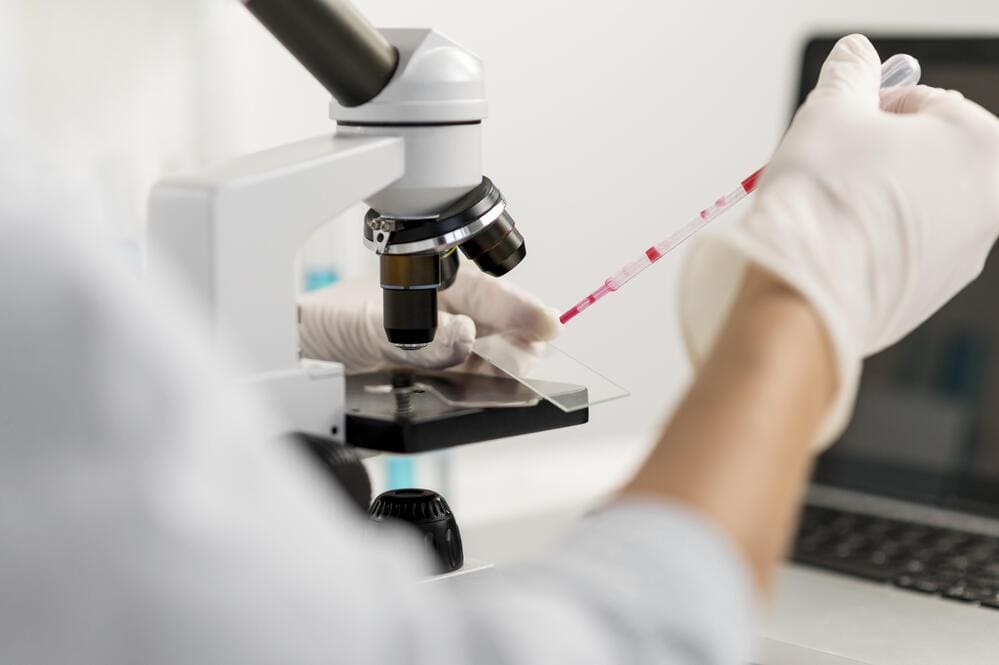The Importance of Preimplantation Genetic Testing in In Vitro Fertilization
December 2024

In Vitro Fertilization (IVF) has revolutionized the possibilities for those facing fertility challenges. However, achieving a successful pregnancy depends not only on the quality of the embryo but also on its genetic integrity. This is where Preimplantation Genetic Testing (PGT) comes in—a groundbreaking tool that identifies embryos with a healthy genetic profile before they are transferred to the uterus.
In this article, we’ll explore what PGT is, how it works, and why it is essential for improving success rates in fertility treatments.
What is Preimplantation Genetic Testing (PGT)?
PGT is a genetic screening technique performed on embryos obtained during an IVF cycle. This procedure examines the chromosomal and genetic makeup of the embryo to identify abnormalities that could affect implantation, fetal development, or the baby’s health.
There are different types of PGT, each tailored to specific needs:
- PGT-A (for aneuploidy): Detects chromosomal abnormalities, such as trisomies or monosomies.
- PGT-M (for monogenic diseases): Identifies genetic mutations responsible for hereditary conditions.
- PGT-SR (for structural rearrangements): Examines structural abnormalities in chromosomes.
Why is PGT Important in IVF?
PGT plays a critical role in the success of IVF treatments. Its primary benefits include:
- Increased Implantation Rates:
Transferring genetically normal embryos significantly boosts the chances of successful implantation. - Reduced Risk of Miscarriage:
Chromosomal abnormalities are a leading cause of miscarriage. By selecting embryos without these issues, PGT helps reduce this risk. - Prevention of Genetic Diseases:
For couples with a family history of hereditary conditions, PGT-M allows the selection of embryos free from those diseases, ensuring a healthier future for the baby. - Optimized IVF Cycles:
PGT prioritizes embryos with the highest potential, reducing the number of transfers needed to achieve a successful pregnancy. - Saving Time and Resources:
While PGT involves additional costs, it can save time and money in the long term by minimizing unsuccessful IVF attempts.
Who Should Consider PGT?
PGT can benefit a wide range of patients, including:
- Women over 35 years old: Advanced maternal age increases the risk of chromosomal abnormalities in eggs.
- Couples with recurrent miscarriages: Particularly if these are linked to genetic issues.
- Individuals with a family history of genetic diseases: PGT-M helps prevent passing on hereditary conditions.
- Patients with multiple failed IVF cycles: PGT can identify embryos with higher viability to improve outcomes.
- Couples carrying chromosomal rearrangements: Such as inversions or translocations that may affect embryo development.
How Does PGT Work?
PGT is conducted at various stages during an IVF cycle:
- Embryo Creation:
After in vitro fertilization, embryos are cultured in the lab until day 5 or 6, when they reach the blastocyst stage. - Embryo Biopsy:
A small number of cells are carefully extracted from the outer layer of the blastocyst (the trophectoderm) without harming the embryo. - Genetic Analysis:
The biopsied cells are sent to a genetics lab, where they are analyzed for chromosomal abnormalities or specific genetic mutations. - Embryo Selection:
Based on the results, specialists select embryos with the best genetic profile for transfer to the uterus. - Embryo Transfer:
The selected embryo is transferred to the uterus at the optimal time to maximize the chances of implantation.
The Role of PGT in IVF MORE®
At IVF MORE®, PGT is a key component in ensuring the best outcomes for our treatments. Through cutting-edge technology and expertise in genetic testing, we can:
- Identify viable embryos with the highest potential for healthy development.
- Personalize treatment protocols based on the specific genetic needs of each patient.
- Reduce the time needed to achieve a successful pregnancy, optimizing every IVF cycle.
- Provide peace of mind to couples by ensuring their future children are free of preventable genetic diseases.
By integrating PGT into our advanced approach, we are committed to transforming fertility treatment and helping our patients achieve their dreams.
Conclusion
Preimplantation Genetic Testing is a revolutionary tool that has elevated the standards of in vitro fertilization. By selecting embryos with a healthy genetic profile, PGT not only increases success rates but also offers peace of mind to couples and individuals on their path to their baby.
At IVF MORE®, we understand the importance of every step in the fertility process. If you’re considering IVF or want to learn more about how PGT can help, contact us today and discover how we can personalize your treatment to ensure success.
